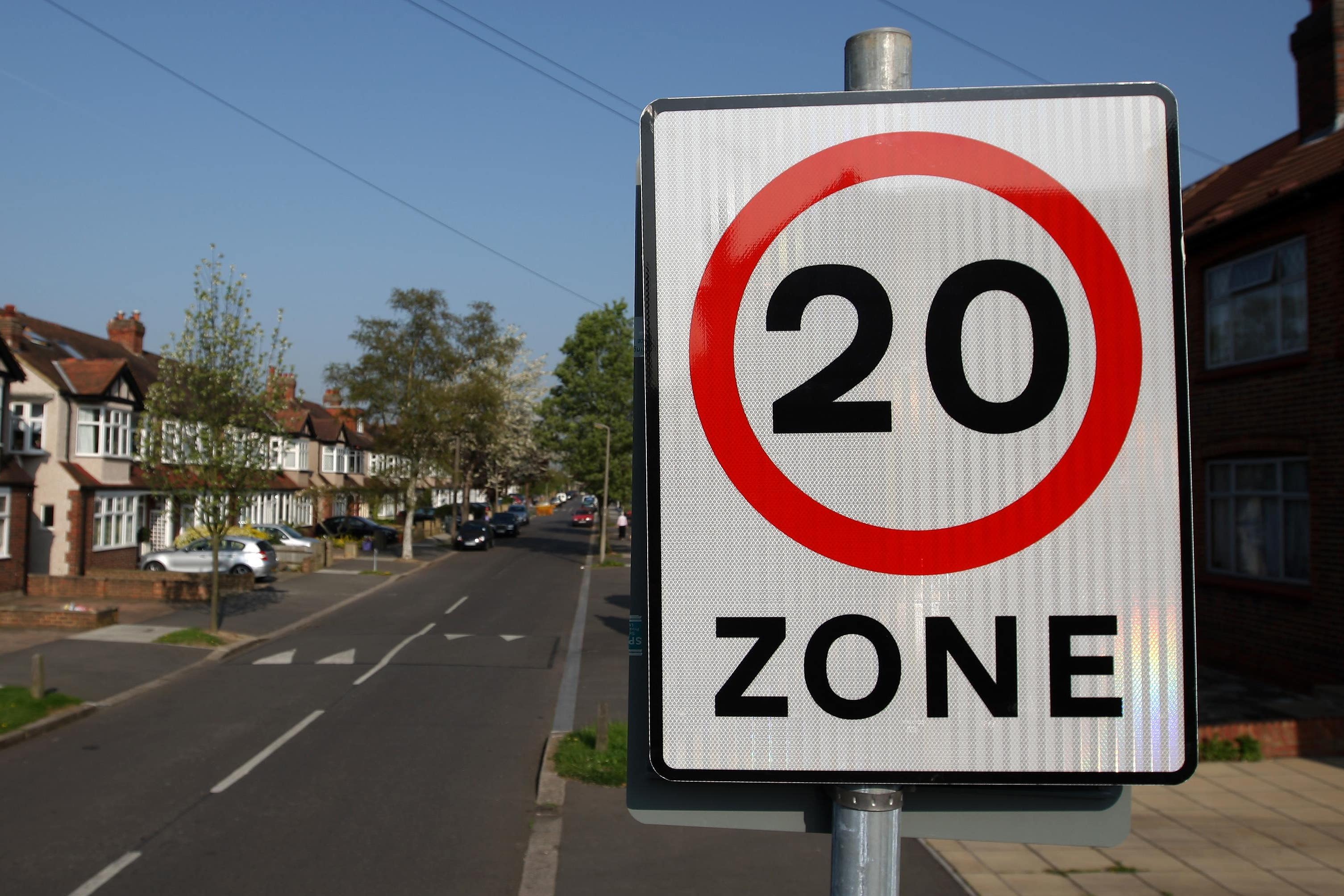MP: Drivers should not receive penalty points for sub-30mph speeding
Conservative former minister Kit Malthouse’s Bill calls for a speed awareness course to be the required response to such an offence.

Your support helps us to tell the story
From reproductive rights to climate change to Big Tech, The Independent is on the ground when the story is developing. Whether it's investigating the financials of Elon Musk's pro-Trump PAC or producing our latest documentary, 'The A Word', which shines a light on the American women fighting for reproductive rights, we know how important it is to parse out the facts from the messaging.
At such a critical moment in US history, we need reporters on the ground. Your donation allows us to keep sending journalists to speak to both sides of the story.
The Independent is trusted by Americans across the entire political spectrum. And unlike many other quality news outlets, we choose not to lock Americans out of our reporting and analysis with paywalls. We believe quality journalism should be available to everyone, paid for by those who can afford it.
Your support makes all the difference.Drivers caught speeding between 20mph and 30mph would not receive penalty points under a proposed law tabled in Parliament.
Conservative former minister Kit Malthouse said motorists should instead be required to attend a speed awareness course, with repeat offenders made to do the course again.
Points would still apply to those drivers who do not attend their course, Mr Malthouse said.
The former justice minister argued his proposed reform offers a “more proportionate approach” to 20mph zones and would achieve better road safety.
Most people caught speeding are handed a £100 fine and either penalty points or offered the chance to participate in a retraining course.
Introducing his Road Traffic and Street Works Bill to the Commons, Mr Malthouse said: “I propose that anybody caught speeding between 20mph and 30mph does not receive penalty points, rather they would be required to attend a speed awareness course and repeat offences would require repeat attendance at speed awareness courses.
“I should declare an interest having been myself at a speed awareness course recently, caught doing 24mph on the Embankment unwittingly – along with the Archbishop of Canterbury.
“Not at the same time or in the same vehicle, he was also done for a similar offence.
“The rollout of 20mph speed limits across the country has brought benefits in terms of road safety, but it has left many thousands of drivers disproportionately punished for straying over the limit.
“You can receive three penalty points for doing 24mph in a 20mph zone and for doing 57mph in a 50mph zone – (it) seems unfair to many and is in danger of discrediting the system.
“In addition to penalty points and a fine, drivers so punished will also face higher insurance premiums at a time when premiums are rising significantly in any event.
“As it stands it’s possible to lose you driving licence by driving at 24mph four times in three years.”
If our objective is to improve road safety, particularly on residential roads, then it would be more effective to put people through repeated courses, perhaps with increasing intensity and time required
Mr Malthouse said speed awareness courses are “significantly more effective” in preventing reoffending compared with penalty points and a fine.
He added: “If our objective is to improve road safety, particularly on residential roads, then it would be more effective to put people through repeated courses, perhaps with increasing intensity and time required.
“This would be a more proportionate approach and achieve better road safety. Points would still apply for those who fail to attend courses or indeed who fail their courses.”
The Bill would also see a warning letter sent to a driver for their first moving traffic offence – such as entering a bus lane – in a particular location rather than an immediate fine.
Any roadworks on an A road should not be left unattended at any time, according to the third proposal in the Bill.
Mr Malthouse asked for the Bill to receive a second reading on April 19 although it is unlikely to make progress in its current form unless it receives Government support.
AA president Edmund King said: “All our research suggests that the vast majority of drivers benefit from speed awareness courses and would recommend them to others.
“Getting drivers to slow down is vital but in the move to reduce casualties it is more effective to educate rather than prosecute. It would be a pragmatic step to offer courses to those who contravene 20mph limits.”